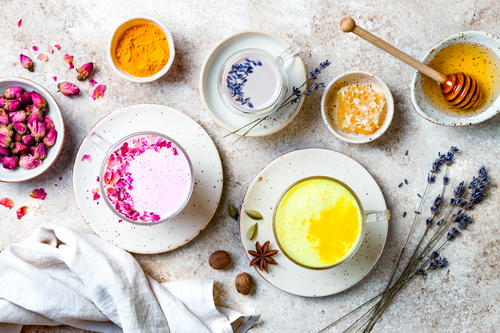Mindful Drinking: The Concious Way to Drink Alcohol

PREFACE BY MARI BERLIN
Before launching Sea of Solace, I was embedded in the high-pressure, high-reward environment of the hospitality industry for many years. In this bustling sector where alcohol is omnipresent, my colleagues and I frequently indulged in happy hours, with heavy drinking serving as my personal relief valve from the job’s relentless pressure.
Upon leaving the hospitality field, the absence of constant pressure led to a diminished desire to drink and party. However, it was in January 2019 that an intense existential crisis struck, dangerously threatening my sanity and leaving me feeling perilously on the edge of a cliff, ready to fall at any moment. This crisis prompted a conscious decision to embrace sobriety until achieving stable mental and emotional health.
During this transformative period, I came to a striking realization: alcohol made my episodes of depression and anxiety so much worse. This newfound awareness marked an interesting turn in my journey, illuminating the profound impact that alcohol had wielded over my emotional and mental states all those years.
Since that pivotal moment, my relationship with alcohol has undergone a significant transformation. Now, I allow myself to enjoy a drink, but only on special occasions, and I approach each instance of consumption with mindfulness and intention. This approach not only safeguards my mental and emotional well-being but also allows me to savor and appreciate the moments of celebration without the overshadowing specter of past excesses.
Mindful Drinking: The Concious Way to Drink Alcohol
For many, a glass of wine at dinner or a beer with friends is a cherished ritual. Alcohol has been part of human culture for thousands of years, bringing people together, marking celebrations, and providing a moment of relaxation. It's worth noting, though, that while enjoying alcohol in moderation has its place, there are compelling reasons to consider limiting our intake. Whether you're contemplating this choice out of curiosity or health reasons, let's explore what is mindful drinking and the benefits together.
what is mindful drinking?
Mindful drinking is an approach to alcohol consumption that emphasizes intentionality, awareness, and moderation. Instead of drinking out of habit or social pressure, mindful drinkers deliberately choose when and how much to drink, savoring each sip and staying attuned to its effects on their bodies and minds. This doesn't necessarily mean abstaining from alcohol altogether. For many, it’s about enjoying alcohol in moderation and being fully present during its consumption. The practice is rooted in mindfulness principles, which advocate for a heightened awareness of the present moment and one's reactions to it. Embracing mindful drinking allows individuals to develop a healthier relationship with alcohol, making choices that align with their well-being goals and values.
benefits of mindful drinking
1. Improved Sleep Quality
A glass of wine or beer might seem like a quick path to slumber, but it often alters our sleep architecture. Alcohol disrupts the REM cycle, a crucial part of our sleep that's responsible for dreaming and memory consolidation. With consistent alcohol-free nights, you'll likely notice a significant improvement in the quality of your dreams. Waking up after such nights can leave you feeling more invigorated and ready to tackle the day. Over time, better sleep translates to a better mood, heightened energy, and a stronger immune response.
2. Enhanced Mental Clarity
A clear mind is a powerful asset, and reducing alcohol can aid in achieving this clarity. Alcohol, especially when consumed in large amounts, can cloud judgment and slow cognitive processes. By minimizing intake, the brain remains agile, sharp, and more capable of detailed tasks. This newfound clarity can improve focus at work, enhance creativity, and elevate day-to-day decision-making. The long-term benefits also include safeguarding against cognitive decline.
3. Physical Health Gains
The body's response to decreased alcohol intake can be profound. Every drink avoided allows the liver, a vital organ for detoxification, to function more efficiently. By aiding our liver, we're promoting better overall internal health, paving the way for longevity and vitality. Additionally, without the dehydration effects of alcohol, the skin becomes more radiant and the body maintains better hydration levels. Weight management also becomes more attainable without the extra empty calories from alcoholic beverages.
4. Greater Emotional Stability
Emotions play a pivotal role in our daily lives, influencing decisions, reactions, and relationships. While alcohol can sometimes serve as a temporary emotional band-aid, it often exacerbates feelings of anxiety, sadness, or anger in the long run. Choosing to navigate emotions without the crutch of alcohol fosters genuine emotional intelligence. This natural approach allows for a deeper understanding of oneself and cultivates resilience. Over time, this stability translates to healthier interpersonal relationships and a stronger sense of self.
5. Financial Savings
The financial implications of regular alcohol purchases can be substantial. By reducing or eliminating this expenditure, there's potential for considerable savings. This newfound financial freedom can be redirected towards personal wellness, investments, or experiences that contribute to a fulfilling life. For instance, the funds saved could sponsor a yoga retreat, a personal development course, or even a dream vacation. Over the years, these cumulative savings can amount to life-changing financial milestones.
6. Exploring New Beverages
The world of beverages is vast and exciting, going way beyond alcoholic options. Limiting alcohol opens the door to discovering a plethora of flavors, ingredients, and drink-making techniques. Herbal infusions, non-alcoholic craft beers, or exotic fruit blends can offer delightful experiences for the palate. Engaging in the art of crafting mocktails can also become a creative and social endeavor. Over time, you might find that these alternatives offer just as much joy, if not more, as their alcoholic counterparts.
7. Developing New Coping Mechanisms
Life inevitably presents challenges, and the way we cope can shape our experiences. While alcohol has been a go-to for some, it's a temporary solution that doesn't address root issues. Delving into alternatives like meditation, exercise, or journaling can offer profound insights and lasting relief. Engaging in these practices fosters personal growth, self-awareness, and resilience. As these new habits take root, you'll find they offer a deeper, more holistic form of relief.
8. Strengthening Relationships
Interpersonal relationships are at the heart of human experience. Alcohol, while a common social lubricant, can sometimes lead to misunderstandings, missed connections, or conflicts when overconsumed. By consciously choosing to limit or avoid it during social interactions, conversations become more authentic and memories more vivid. This genuine connection can lead to deeper bonds, lasting memories, and more meaningful interactions. Over time, this can enrich your social life and strengthen the ties that matter most.
9. Empowering Personal Choice
Every decision we make shapes our path in life. Deciding to limit alcohol is a powerful testament to one's commitment to personal well-being. This decision, whether motivated by health, curiosity, or personal growth, is an empowering step towards a life more aligned with one's true desires. With each passing day, the benefits of this choice compound, leading to an enriched, balanced, and fulfilling life journey. It's a choice that signifies control, intention, and a deep sense of self-care.


